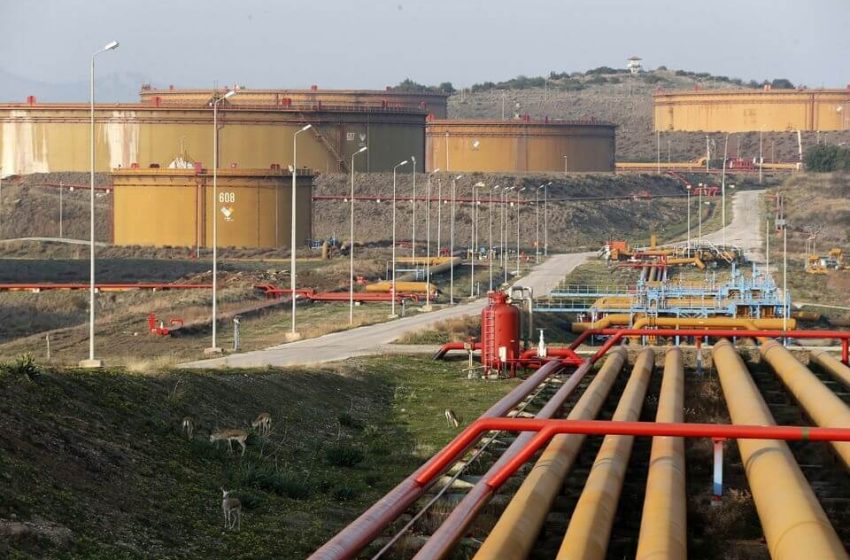Baghdad studies budget amendments to resume Kurdistan’s oil exports

Oil tanks at Turkey’s Mediterranean port of Ceyhan. Photo: Reuters
Baghdad (IraqiNews.com) – The Iraqi government is researching ways to restructure its budget to reimburse foreign companies managing oil fields in the Kurdistan region of Iraq, hoping to bring oil from the semi-autonomous area back online.
In a statement to Bloomberg, the Iraqi Prime Minister, Mohammed Shia Al-Sudani, explained that the government is discussing the amendment of relevant laws with the parliamentary financial committee as companies operating in Iraqi Kurdistan are waiting for payments to cover the production cost, according to Oil Price.
Due to a disagreement over who should approve the oil exports from Iraqi Kurdistan, around 450,000 barrels per day of oil from Iraq’s northern resources have been blocked since March. As a result, the country currently only sells oil through its southern oil export terminals.
On November 12, the Iraqi Oil Minister, Hayan Abdul-Ghani, announced that an agreement would be reached with the Kurdistan Regional Government (KRG), oil companies, and Ankara to resume oil exports from Iraq to Turkey.
At that time, the Iraqi Ministry of Oil said in a statement that Abdul-Ghani and his accompanying delegation met with the Prime Minister of Iraqi Kurdistan in Erbil to discuss issues related to oil exports, which had been halted for months.
Turkey stopped Iraq’s exports of 450,000 barrels per day through the oil pipeline that extends from the Kurdistan region of Iraq to the Turkish port of Ceyhan on March 25.
Turkey’s decision to suspend oil exports followed an arbitration decision issued by the International Chamber of Commerce (ICC) in Paris.
The decision obliged Turkey to pay Baghdad $1.5 billion in compensation for damages caused by the KRG’s export of oil without permission from the federal government in Baghdad between 2014 and 2018.
The KRG began exporting crude oil independently in 2013, a step Baghdad considered illegal.
Attempts to resume oil exports from Iraqi Kurdistan were delayed because of the Turkish presidential elections and discussions between the State Organization for Marketing of Oil (SOMO) and the KRG over an oil export deal.
The Kurdistan region of Iraq suffers from a lack of liquidity due to the suspension of oil exports through the pipeline.
Iraqi politicians and Kurdish lawmakers said that Iraqi Kurdistan had no other choice but to accept 12.67 percent of the $153 billion budget approved by the Iraqi Parliament.
